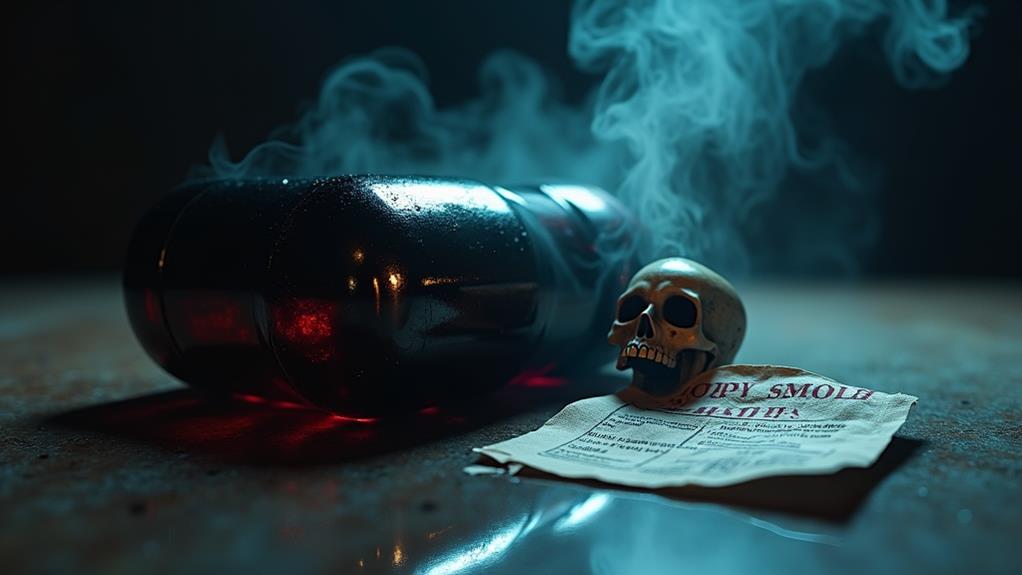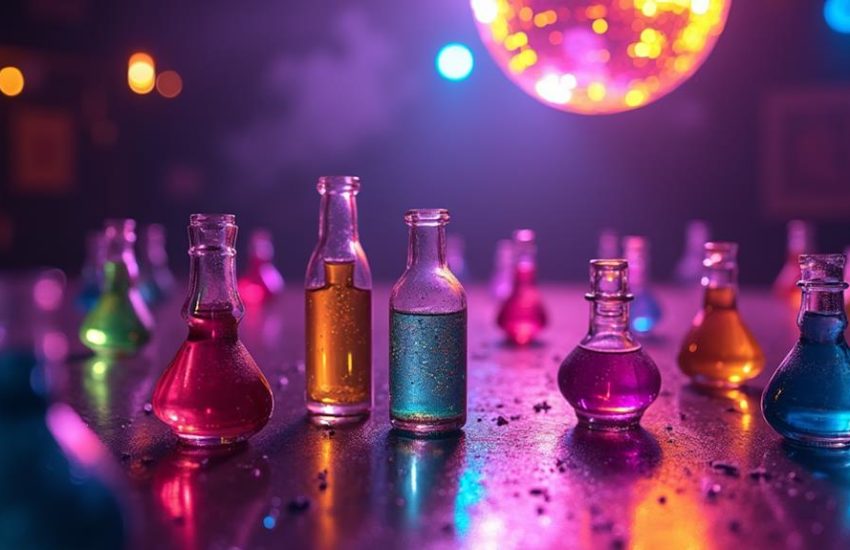One Sip of Poppers Could Kill You: The Deadly Risks of Ingestion
Poppers, commonly inhaled for euphoric effects, can be lethal if ingested. Even a small sip of these alkyl nitrite compounds can cause severe hypotension, organ damage, and methemoglobinemia. Symptoms of poisoning include cyanosis, severe headache, dizziness, and potentially seizures or respiratory failure. In spite of misconceptions, legal availability doesn't equate to safety. Ingestion risks are far more severe than inhalation, with rapid onset of life-threatening conditions. Medical professionals strongly advise against oral consumption under any circumstances. Understanding the gravity of these risks is essential for preventing tragic outcomes. Further exploration of this topic reveals additional vital information about the dangers and safer alternatives.
What Are Poppers?
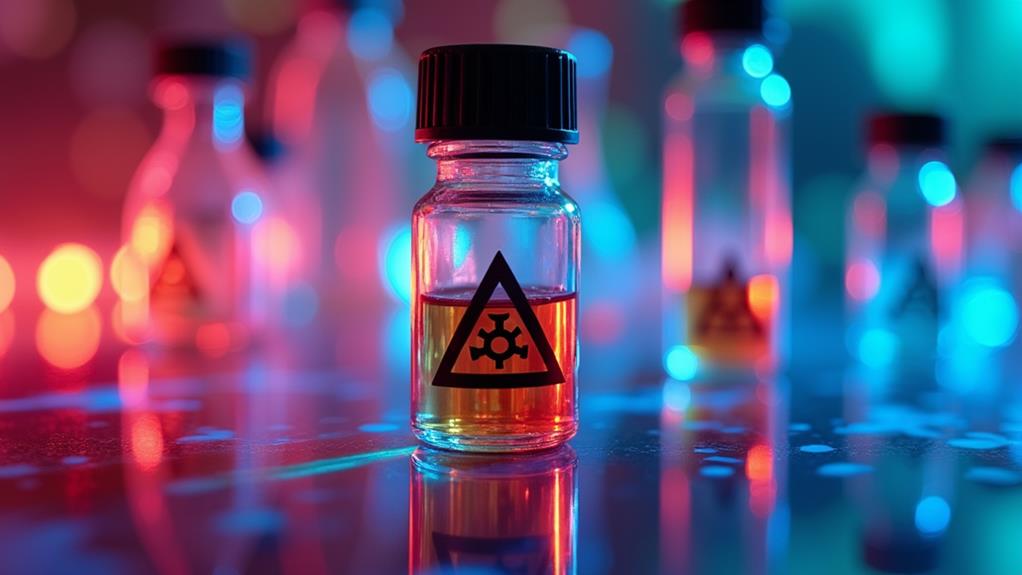
As a recreational inhalant, poppers refer to a class of volatile alkyl nitrites, primarily used for their euphoric and muscle-relaxing effects. The chemical composition of poppers typically includes amyl nitrite, butyl nitrite, or isopropyl nitrite. These substances are clear, yellowish liquids with a distinctive fruity odor.
Historically, poppers gained popularity in the 1960s and 1970s within the gay community as a means to improve sexual experiences. In spite of their use, poppers have been linked to various health effects, including vision impairment and muscle twitching. Users often remain unaware that the inhaled chemicals can differ greatly from medical-grade amyl nitrite.
The historical use of poppers extends beyond recreational purposes. In the late 19th century, amyl nitrite was used medicinally to treat angina pectoris.
Today, poppers are often sold in small bottles labeled as "room odorizers" or "leather cleaners" to circumvent legal restrictions. Although inhalation remains the primary method of consumption, ingestion poses severe health risks and can be fatal.
Dangers of Ingesting Poppers
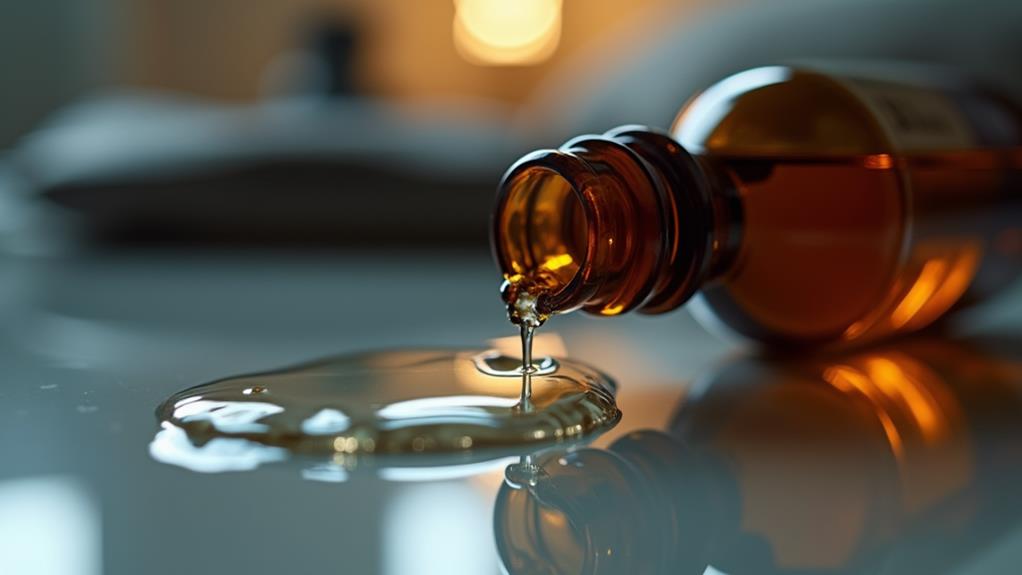
Whereas poppers are typically inhaled for recreational purposes, the ingestion of these substances poses severe and potentially life-threatening risks.
The chemical properties of poppers, primarily alkyl nitrites, make them highly toxic when consumed orally. Ingestion can lead to rapid and dangerous drops in blood pressure, causing severe hypotension and potentially fatal consequences. Symptoms such as visual disturbances and low oxygen saturation levels have additionally been reported.
The health risks associated with poppers ingestion include:
- Methemoglobinemia, a blood disorder that reduces oxygen delivery to tissues
- Severe damage to internal organs, particularly the liver and kidneys
- Acute respiratory distress and potential cardiac arrest
Medical professionals strongly advise against the oral consumption of poppers under any circumstances.
The community should be aware that even small amounts ingested can result in dire outcomes. It is essential to educate individuals about these dangers to prevent accidental or intentional ingestion and promote safer practices within social circles where poppers use may occur.
Warning Signs of Poisoning
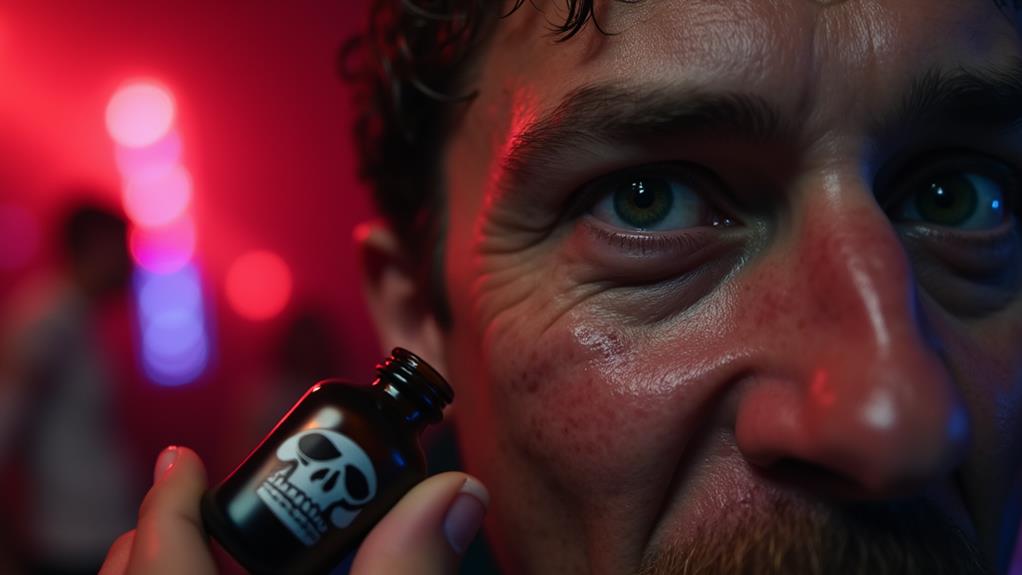
Given the severe health risks associated with poppers ingestion, recognizing the warning signs of poisoning is vital for prompt medical intervention.
Symptom identification is essential for emergency response. Key indicators include sudden onset of blue-tinged skin (cyanosis), particularly around the lips and fingertips, severe headache, dizziness, and confusion. Rapid heartbeat, difficulty breathing, and chest pain may likewise occur.
In severe cases, individuals may experience seizures, loss of consciousness, or respiratory failure. Users should likewise be aware of potential neurological damage, which can manifest as coordination problems or extreme lethargy.
Members of our community should be vigilant for these symptoms, especially if poppers ingestion is suspected. Immediate action is necessary if any warning signs appear.
Call emergency services immediately and provide as much information as possible about the substance ingested. As you wait for help, verify the affected person is in a well-ventilated area and monitor their breathing and consciousness levels.
Misconceptions and Misinformation
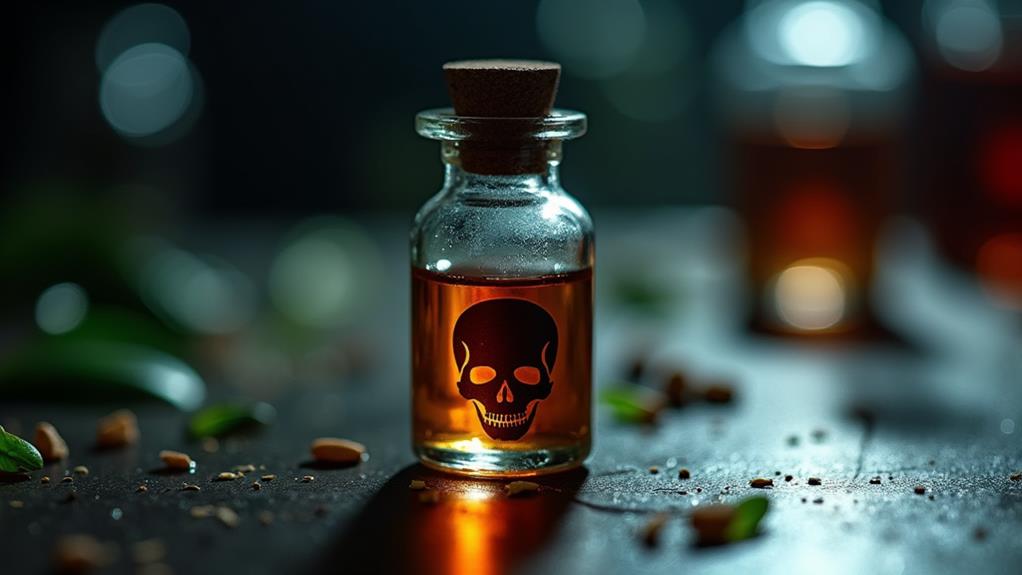
Misconceptions and Misinformation
Myths and falsehoods surrounding poppers use contribute to dangerous misconceptions about their safety and effects. Common myths and public perception often downplay the risks associated with these substances, leading to potentially life-threatening situations.
Misinformation can spread rapidly through social circles and online communities, perpetuating false beliefs about poppers' safety profile. For example, many people mistakenly believe that poppers are safe due to the fact that they are sold legally in some places. Nevertheless, the legality does not equate to safety, as serious respiratory issues can still occur with use.
Some prevalent misconceptions include:
- Poppers are safe because they're sold legally in some places
- Ingesting small amounts won't cause harm
- Mixing poppers with alcohol is relatively harmless
These misunderstandings can lead to risky behaviors and delayed medical intervention in cases of accidental ingestion or adverse reactions.
It's vital to dispel these myths and educate users about the true nature of poppers, their intended use, and the severe consequences of misuse. Accurate information from reliable sources is fundamental to combat the spread of dangerous misinformation and protect individuals from harm.
Safer Alternatives and Prevention
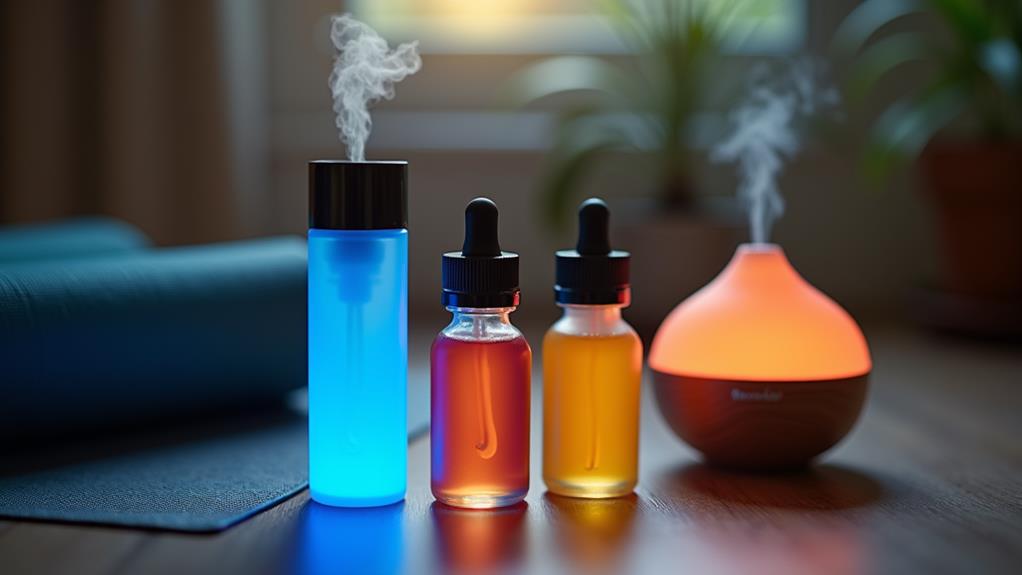
Prevention strategies and safer alternatives play a significant role in mitigating the risks associated with poppers ingestion. Health education initiatives focusing on the dangers of poppers consumption can effectively deter individuals from experimenting with these substances.
Promoting awareness about the potential fatal consequences of ingestion is imperative for community safety. Understanding the long-term effects and risks associated with poppers, including severe eye damage, is fundamental for thorough education.
For those seeking similar effects, safer alternatives may include guided meditation, breathwork techniques, or exploring consensual practices that do not involve chemical substances. It is crucial to emphasize that there is no safe usage method for ingesting poppers, as even small amounts can be lethal.
Encouraging open discussions about sexual health and pleasure within supportive communities can help reduce the perceived need for dangerous substances. By nurturing a culture of informed decision-making and promoting healthier alternatives, we can work towards preventing poppers-related fatalities and protecting vulnerable individuals.
Call Us To Assist You
Ingestion of alkyl nitrites, commonly known as poppers, poses severe health risks including methemoglobinemia and death. A case study from 2020 reported fatal poisoning after oral consumption of poppers, highlighting the vital danger. Public education on the distinction between inhalation and ingestion is crucial. Harm reduction strategies should focus on preventing accidental ingestion and promoting safer alternatives. Healthcare providers must remain vigilant in recognizing and treating poppers-related poisonings swiftly to mitigate potentially lethal outcomes.
